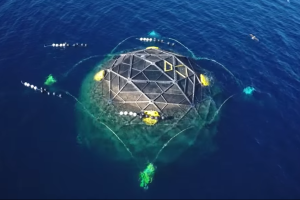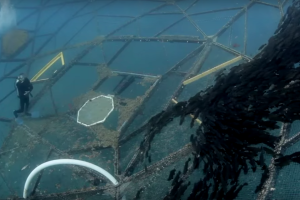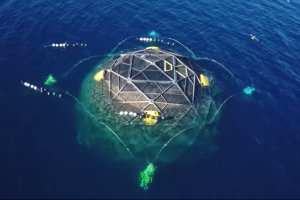
I recently came across a video detailing a really interesting new concept for fish farms. I’ve linked to the video below, and it will explain the concept much better than I do, but the basic idea is that the farms take on the shape of large spheres, and are placed far off shore in deep water. While there’s a large list of benefits to fish farmers, the fact that the farms are going to be off shore caught my attention as an angler as it could help resolve an issue that has been going on for some time, the issue of sea lice.
https://www.youtube.com/watch?v=WpPZUGIJ2M0
Living on the Atlantic coast, my heart goes out to my fellow anglers on the Pacific coast. The salmon farms are an issue here, but my understanding is that they are much more of an issue in BC. These farms could be the solution to the sea lice problem plaguing the Pacific coast. Two main benefits are immediately apparent, the first being that the farms are moved away from coastal areas, and the second being that the deep sea farms afford much more room to the fish being farmed resulting in healthier fish
The farms being removed from coastal areas means that juvenile salmon no longer need to swim directly past fish farms on their way to sea. This is especially important as young fish are the most vulnerable, and typically ill equipped to deal with sea lice. They can die from as little as a single sea lice attached to them, and even if the sea lice doesn’t kill the salmon, it raises their stress level and leaves them more prone to infection.

The fact that the farms are larger and spread further apart means that there won’t be the large density of fish that allows for sea lice to spread so prolifically. Not only are the fish farms removed from the native fish habitat, but the fish farms themselves are healthier, resulting in fewer sea lice being produced.
I do most of my fishing on Prince Edward Island, and encounter an average of 3-4 sea lice each Steelhead caught here. The sea run Brook trout and Atlantic Salmon here seem to be better off, at least on average.

